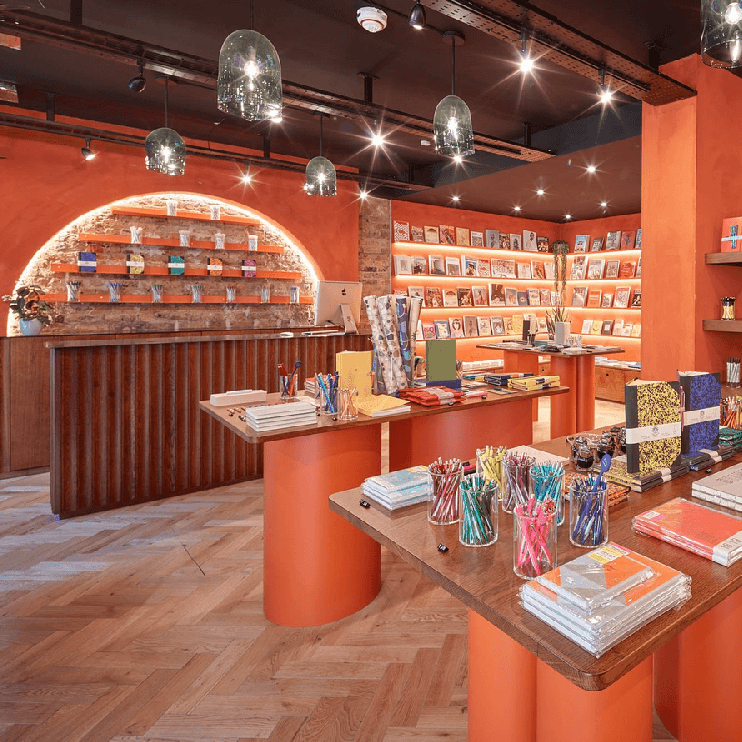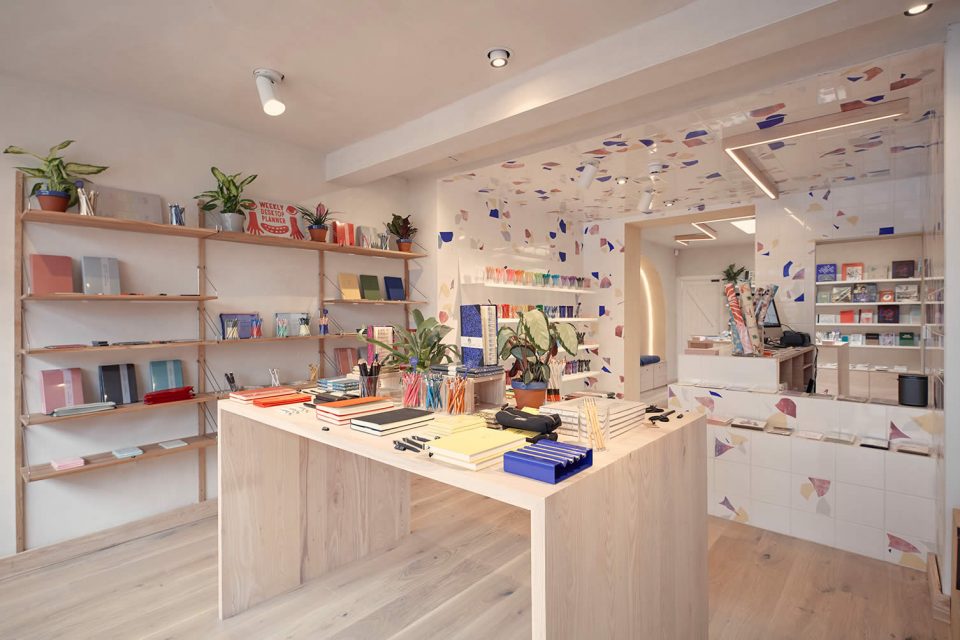Corona Impact Series: A Shoreditch paper goods supplier forced to move online

In this series, City A.M. looks at the financial and economic impact of the ongoing pandemic on a range of small and medium-sized businesses across London. Today: how a small stationery brand was forced to accelerate its digital transformation.
“At the start of the first lockdown we had to close our five brick-and-mortar stores pretty much overnight,” sighs Sidonie Warren, founder of Papersmiths.
Before the pandemic, the stationery brand and paper goods supplier had branches in Shoreditch, King’s Cross, Chelsea, Brighton and Bristol. As a direct result of the Coronavirus outbreak and its subsequent lockdown, revenue in the shops dried up very quickly.
Together with her co-founder Kyle Clarke, Warren moved Papersmiths’ online inventory to her home in Hackney where she fulfilled orders from her spare room for four months. Any time not spent wrapping orders was focused on marketing.
“We were fortunate that some of our bricks-and-mortar customers started to shop with us online for the first time,” Warren tells City A.M.
Each week, she would cycle to her Papersmiths London stores and collect stock to top up the inventory. “Sometimes I’d have 15kg of stationery in my backpack. At the start of lockdown I was averaging 9mph and now I’m at 12mph so I’m pleased it’s not just online revenue that’s been boosted by all of this,” says Warren, as she laughs.
Online from home
Papersmiths’ onlines sales during the first lockdown were up 400% on the same period in the previous year. Keeping tabs on the numbers has been essential for Papersmiths’ survival. Warren and Clarke use accounting software Xero to update the business’ cashflow forecast.
“Throughout the first lockdown it was about adding in the latest government financial support and figuring out when the money was going to run out” she explains. “I used the data to approach our suppliers and landlords and ask for help.”
The Papersmiths supply chain is made up of over 100 designers and makers who are independent business themselves, so Warren sees the survival of her company very much as a collective effort. “Every single one of them gave us more time to pay our bills” she says.
Papersmiths flagship shop is situated on Pavilion Road in Chelsea, part of the Cadogan Estate.
“Cadogan has been incredibly supportive with flexible payment terms, local marketing opportunities and pedestrianizing our street which had a positive impact on footfall,” Warren says. “It really has been a team effort and I’ll be forever grateful that our suppliers and landlords were able to help us.”
But even with all of the above support, she could see that recovery would be challenging, and survival was far from guaranteed.
Not eligible
After an eight-week application processes, Warren was told by two CBILS lenders that the business was not eligible for a government-backed loan because they had made a loss during a period of expansion in 2018, even though the business had made a healthy profit year-to-date.
With that option off the cards, Warren opted for the Bounce Back Loan scheme. “It was a quarter of what we needed and we knew we couldn’t afford to make any losses once the stores were able to open again,” she says.
Therefore, the decision was made to permanently close the Bristol and Shoreditch outposts which meant making half of the 30-strong team redundant.
“It was a heart-breaking decision to say the least but, in the end, it came down to the survival of the whole business” Warren says, visibly moved.
Looking ahead
In June, Papersmiths reopened its stores in Brighton, Chelsea and King’s Cross and sales gradually recovered. In October, Brighton was up on 2019 trade by 10%.
Warren had expected online sales to level out once customers could come and shop in person again, but they kept growing. The digital business saw a further 23% growth in sales from quarter two to quarter three.
What of the second lockdown? Although the stores being closed during retail’s golden quarter was a big blow for Papersmiths’ profits and planned recovery period, she considers the acceleration of digital growth as positive.
“I had to erase 80% of our anticipated November income in my Xero forecast. But I have a full month to focus on digital marketing, during the season that I’d usually be spending most of my time travelling around to visit the stores,” Warren says.
She also had the time to make some small but much-needed changes, like updating the brand packaging to make the online shopping experience more tactile and spending time working on Papersmiths’ own brand range, which launches next Spring.
“I’m keeping a close eye on our cashflow, and every week I update the forecast with what’s actually happened. We are nearly through quarter four and digital sales are nine times what they were this time last year,” Warren concludes.
She is cautious but confident there is “a positive future ahead of us and I believe we are a stronger business as a result of this pandemic.”
